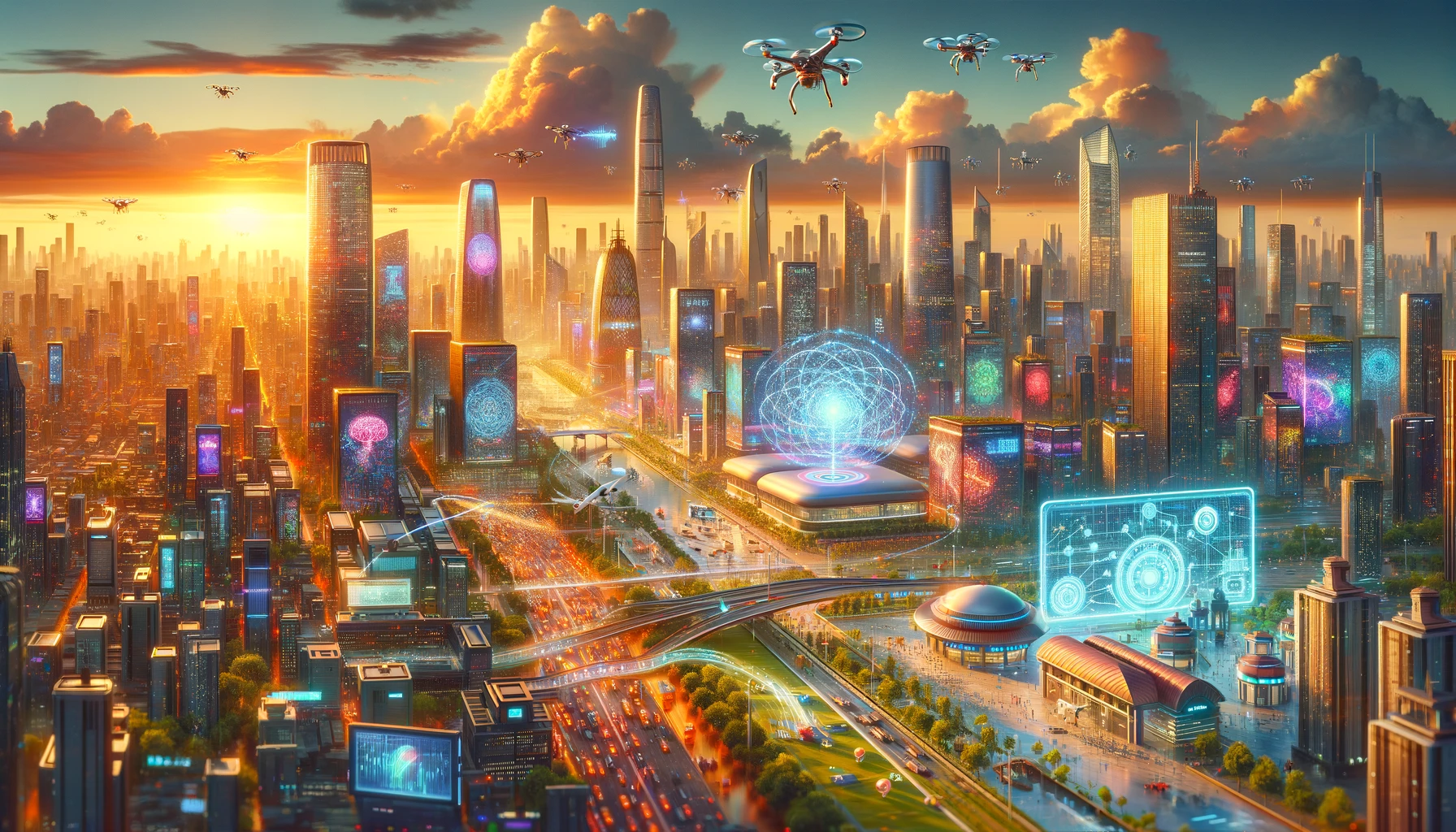China’s A.I. Journey: Learning from the U.S.
China is on a mission to be a big player in artificial intelligence (A.I.), looking to make big moves in areas like generative A.I., where programs can create new content all on their own. But, even with all its tech muscle, China was caught off guard by some of the cool stuff coming out of the U.S., like ChatGPT. This surprise shows a bigger story: China’s push to be a leader in A.I. is really tied to the tech developed in the U.S.

Relying on U.S. A.I. Tech
Take the story of 01.AI, a Chinese startup that’s got some serious backing and is worth a lot. They’re using tech from Meta (yeah, the Facebook guys) as a starting point for their own A.I. stuff. This isn’t just a one-off; it’s part of a bigger trend where Chinese tech companies are building on the foundations laid by U.S. innovations, even as they try to chart their own course.
Bumps in the Road: Rules and the Economy
It’s not all smooth sailing, though. China’s government has a lot of rules about what tech companies can and can’t do, and these companies have to make sure their innovations fit within these guidelines. This, plus an economy that’s not doing too hot, makes it tough for China to keep up with the U.S. in the A.I. game.
The Bigger Picture: A.I. and World Politics
The race to be the best in A.I. isn’t just about making cool tech; it’s got big implications for global politics, too. The U.S. and China are the main players, each trying to outdo the other in creating tech that could change how we work, play, and live in the future.
China’s Hurdles and Hopes
China’s not giving up, though. They’re using open-source A.I. models from the U.S. and pouring resources into their own projects to try and catch up. But they’ve got some big challenges to overcome, like those strict rules we talked about and figuring out how to innovate in a way that really shakes things up.
U.S. Moves and Counter-Moves
Meanwhile, the U.S. isn’t sitting back. They’ve put rules in place to try and keep China from getting too ahead in tech, especially when it comes to really important stuff like microchips. But the world of A.I. is tricky, with a lot of the tech being open for anyone to use, which makes this whole competition even more complex.
So, there you have it: China’s got big dreams in A.I., but they’re learning a lot from the U.S. as they try to catch up. It’s a mix of competition, cooperation, and trying to navigate a bunch of challenges along the way.

Frequently Asked Questions (FAQs) About China’s A.I. Ambitions and U.S. Tech Dependence
1. Why is China so interested in advancing in A.I.?
China sees artificial intelligence as a key to future success, not just in technology, but across all industries. By leading in A.I., China hopes to boost its economy, improve productivity, and establish itself as a global tech powerhouse. A.I. is also crucial for advancing innovations that can solve complex problems and create new opportunities.
2. How are Chinese companies relying on U.S. technology for their A.I. development?
Many Chinese tech companies start with A.I. technologies developed in the U.S. as their foundation. For example, startups like 01.AI use American-made A.I. models and tools to build their own products. This approach lets them jumpstart their A.I. projects, benefiting from the advanced research and development already done in the U.S.
3. What challenges does China face in its quest to become a leader in A.I.?
China faces several hurdles, including strict government regulations that dictate how tech can be developed and used, and an economy that’s been under pressure. These factors make it hard for China to move as quickly or as freely as it might like in the race to A.I. supremacy.
4. How is the A.I. race affecting global politics?
The competition between the U.S. and China in A.I. is shaping international relations, with each country trying to secure its spot as the leader in this critical field. This race impacts everything from economic strategies to national security measures, and it can influence global standards and norms around technology use.
5. What steps is the U.S. taking to maintain its lead in A.I. technology?
The U.S. is using a combination of policy measures, like restricting sales of certain technologies to China, and investing in domestic innovation to stay ahead. These efforts aim to protect U.S. interests and ensure its tech remains at the cutting edge. The challenge is balancing these protective measures with the benefits of global cooperation and open-source development in A.I.
Sources The New York Times


